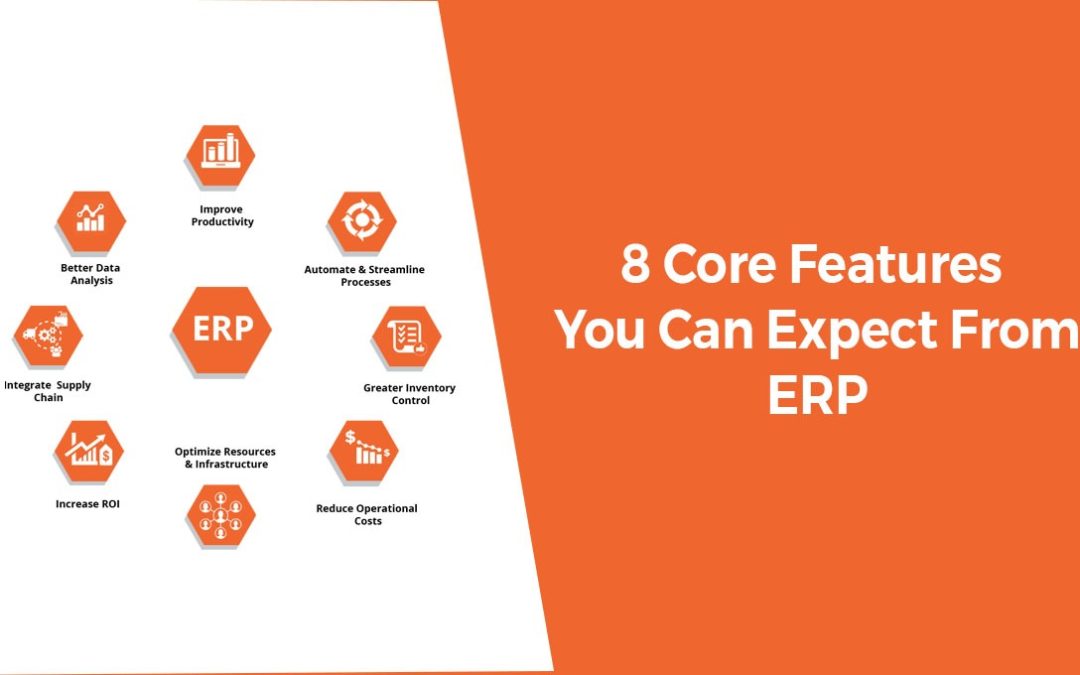Customers and sales are an important part of the business. The ERP system makes the business easier by linking the orders that place demands on the business. The manufacturing and supply industry is in a state of constant change and digitalization of process.
ERP solutions are specifically designed for manufacturing companies and it provides a lot of tools. The tools which are provided in ERP are capable of improving your organization’s operations.
So let’s look at a few ERP solution features that are most helpful to manufacturing industries.
-
Ability to audit
The ERP system is able to trace parts and components. This feature is incredibly helpful as it ensures whether the manufacturing company’s operations are smooth and efficient or not. It also allows you to meet government regulations and standards.
Being able to track each product and each part, the ERP system also allows you to provide top-notch after-the-sale support. It identifies and addresses problems (if any) as soon as they appear. It gives you a solution that can systematically track individual parts and packages that pass through the manufacturing and supply chain.
-
Integration with manufacturing process
This feature is crucial when it comes to helping companies synchronize their manufacturing and inventory processes.
Here are the benefits of a manufacturing module:
* Inventory management designed to reduce costs
* Inventory reports to track business-critical information
* Goal setting by streamlining the production process
* Expedited production cycles
-
Customer database
This is the most convenient way to manage customer data. In an ERP system, it is often categorized as suspect, prospect, or customer. With this feature, customers can be grouped by product. Advanced customer features will upgrade CRM tools such as a sales pipeline, linked customers and prospecting tools.
-
Customer relationship management integration
The customer relationship management (CRM) module is the best solution to put all this information in one place. It helps your organization to manage the invoice or keep track of the status of your contracts and other commitments. It is the most important module that allows different teams in different departments such as sales, marketing, and customer service support.
-
Quoting
The structure of quotes in an ERP sales module is often similar to the order. Quotes usually show the ending date when the quote is no longer valid. After the negotiation is complete, ERP allows converting a quote into an order.
-
Backlog
ERP gives a queryable database of all open orders. It usually sequences all the open orders by due dates. Orders for next month’s delivery can be put in the process of production.
-
The sales forecast
Many ERP systems include a variety of statistical models to project the future from past sales patterns. The sales forecast some grounding from customers such as order history, customer growth projections, etc. Forecasts are used to predict order demands that were needed to plan component purchases or future capacity.
-
Inventory management
While keeping more of the same products in-stock may seem like a good thing for a business, in the automotive parts business having excess inventory translates to incurring unnecessary holding costs. Today’s leading manufacturers are embracing strong manufacturing approaches that require optimizing inventory and keeping goods with a specific purpose.
CONCLUSION
A web-based ERP solution is flexible and powerful that offers several benefits to manufacturers. This application helps the organization with speed, quality, and efficiency in all aspects. At the end of the day, the core benefit of using an ERP system profit maximization and cost reduction.



